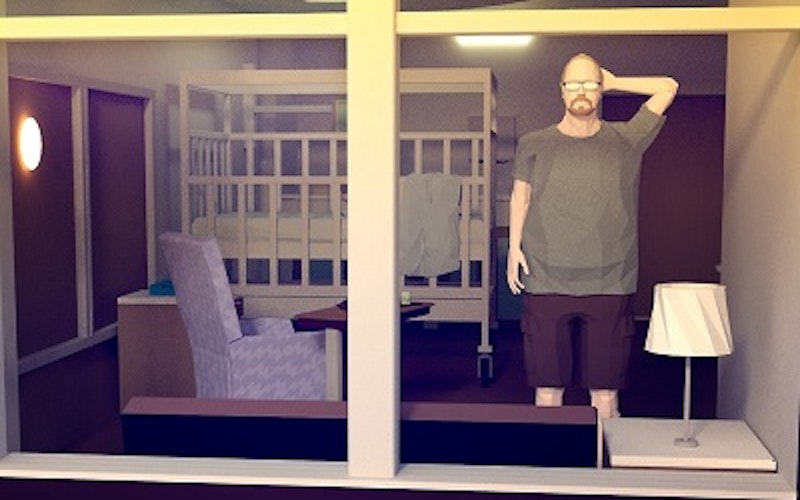
Games
Mourning and hoping alongside That Dragon, Cancer
"We live in a sick system … and our job should be to redeem it, not just condemn it."
So says Ryan Green, one half of the team responsible for That Dragon, Cancer, a point-and-click video game about Green's son, Joel, and his battle with terminal brain cancer. Joel was diagnosed at the age of 1. At 2, he was given a few weeks to four months to live. Joel has had seven tumors, the most recent of which is large and aggressive. Joel is now 4-years-old.
While it may seem odd to tell Joel's story in the form of a video game, it's not odd to Ryan Green. “By putting a sense of agency into a world that you have created, you can make something that is more moving and has more potential to change lives," he says.
That Dragon, Cancer releases next year. I recently had the privilege of chatting with Green and Josh Larson, the game's two lead developers, and of playing a pre-release version of the game. The idea behind the portion I played "is born out of this one night, this one experience with Joel," Green said.
"After Joel was declared terminal, we were on some palliative treatment and he had gotten sick … so they admitted him because his blood counts were low so he couldn’t fight the infection. So this [portion of the game] was condensed from six hours with me in the hospital with Joel. He wouldn’t stop crying. Every time I gave him something to drink, he would throw it up - I was just at the end of myself. And I was just weeping on the phone to my wife just saying, “Please get here, I can’t do this.” That was the impetus and I thought, in what other medium could you communicate that kind of helplessness?"
If this sounds heavy compared to the average game, it is. Players navigate around the hospital room with only the mouse. While Joel is not physically represented, you can hear his cries, you know he is there. Players can click on various objects such as juice boxes or the crib in an attempt to comfort him. At times the first-person view swings in response to the player's effort and gives us Joel's perspective looking back at his father in moments of deep anguish.
By the time I finished playing this brief section, I was weeping. I have a 2-year-old daughter. I could not stop thinking about her as I clicked around the hospital room for some means of comforting Joel, some way to calm his fears and bring him peace. I swung from being determined to wanting to escape the cold confines of the hospital room to sighing in relief as Joel fell asleep.
It's a deeply emotional experience, but also incredibly important. "We wanted to create a safe place for people to talk about hard things" Green says on the game's website.
The conversation That Dragon, Cancer invites people to is one that no previous game has attempted. "It's very real, it's very raw, it sucks ... cancer is not a good thing, cancer is not from God," says Green. But the goal of the game is not to leave players in despair. "It will be heavy and heart-wrenching because we've dealt with heavy and heart-wrenching moments,” Green says. “It will be funny because we're funny, and it will have hope, because we have hope."
This is where That Dragon, Cancer is poised to deliver where so many "Christian" video games have faltered. It is honest and vulnerable where most are trite or awkwardly didactic. Green told me the game is not a teaching aid, but rather his family's "testimony.”
"It is about where we've fallen and He picked us up. It's when we didn't have a way out, and He provided salvation. It's about when we doubted, and He gave us faith. For me, our testimony is not about what we've done for God, but when He has done for us. I hope that by sharing weakness, players will trust us and by accepting our invitation to walk with us through this valley we've journeyed through with cancer, maybe they will be able to trust in Him."
Cancer has affected just about everyone in some significant way. That Dragon, Cancer offers players hope as it lets us not only see but, in some sense, experience the testimony of a family who believes, in Green’s words, "that God is telling a good story through our lives" and that "death isn't the end."
Topics: Games, Culture At Large, Arts & Leisure, Home & Family, Parenting